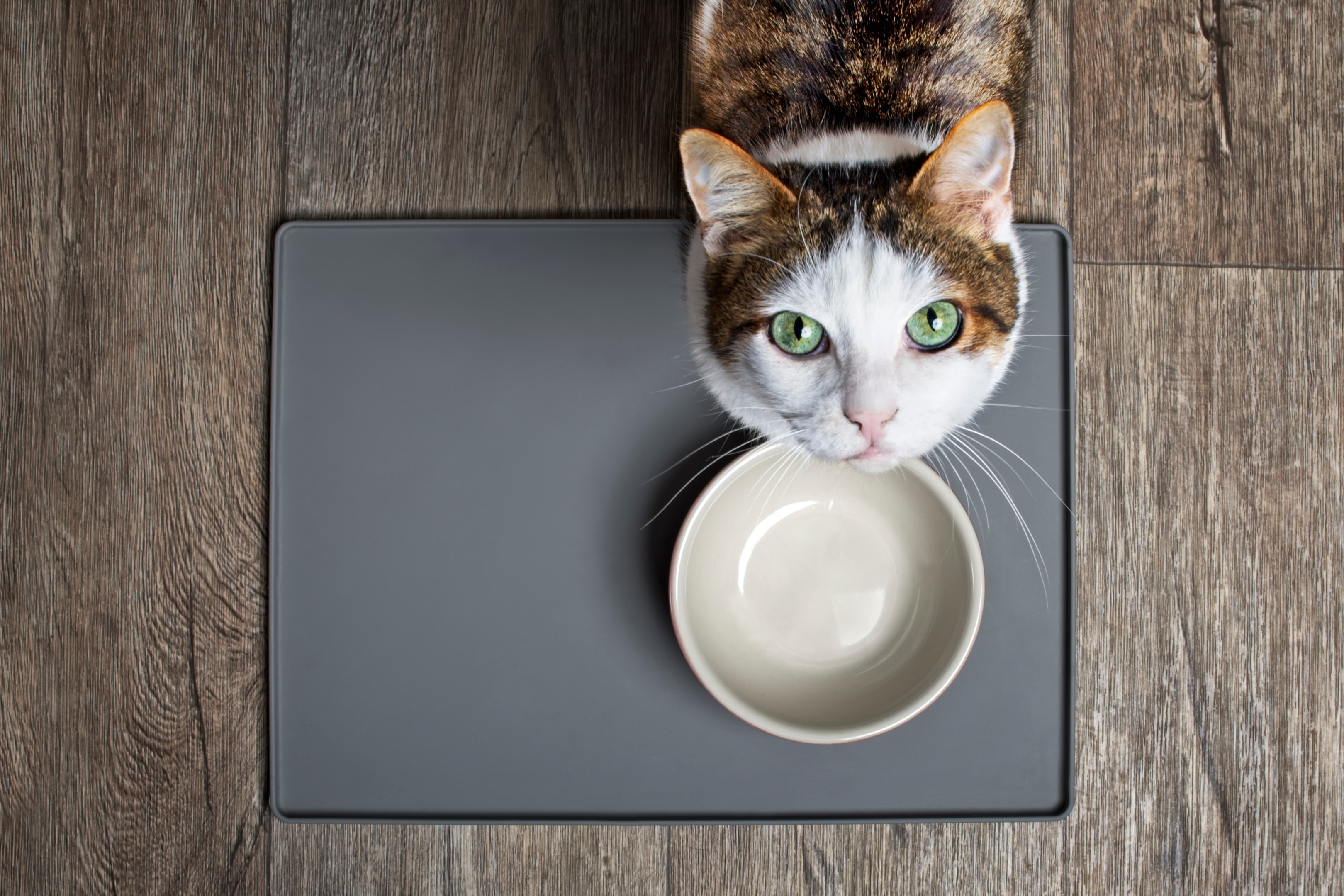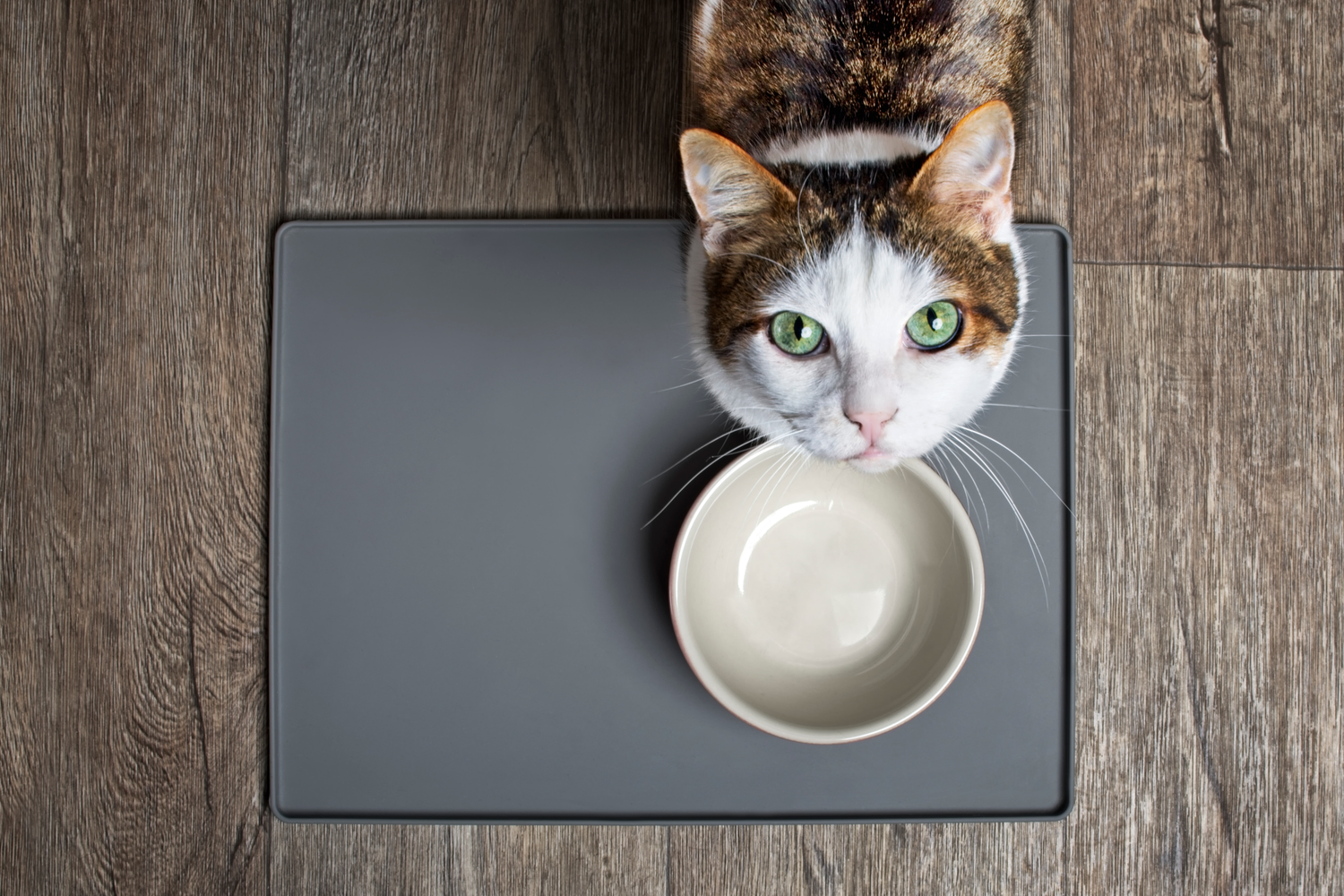Does my cat need dietary supplements?
Cats need specific nutrients to stay healthy. These are usually all found in complete cat food, which is labeled as such. However, depending on the cat's condition, age, and physical characteristics, it may need additional nutrients. The best way to provide these is with supplements that are perfectly tailored to the needs of your feline friend.
Our guide provides information on the most important nutritional supplements for cats and how to administer them. Cat owners will also receive valuable tips on feeding their beloved pet.
Does my cat need dietary supplements?
Whether a cat needs dietary supplements or not cannot be answered definitively. It depends on factors such as the cat's overall health, age, and any existing medical conditions. For example, some cats with increased nutritional needs require additional nutrients that they don't get enough of from their regular cat food. Special dietary supplements are available for these cases.

Taurine is essential for cats
It is very important for cats to receive a sufficient amount of taurine through their diet. This is generally achieved through a standard complete cat food. However, it should be noted that cooked meat generally contains less taurine than raw meat.
than in raw.Taurine can also be given to your cat in the form of snacks . So far, no negative effects have been observed in cases of overdose; instead, the cat's body simply excretes the excess.
Cats need dietary supplements, among other things, to strengthen their immune system. We offer a variety of cat immunity supplements for this purpose.
Additional vitamins
Cats also need many important vitamins . Vitamin A is particularly important, as it is essential for their eyes, skin, and coat . A deficiency can lead to eye diseases and skin problems.
Important: Excess vitamin D should be avoided, as it can lead to skeletal changes and growth disorders . Adult cats weighing 3 kilograms require approximately 300 IU (International Units) of vitamin D daily.
Cats should also consume the following vitamins in their food:
- Vitamin D is responsible for regulating calcium and phosphate levels. It also supports bones, kidneys, mammary glands, intestines, and uterus. Indoor cats often suffer from a vitamin D deficiency. Cats that regularly go outside can synthesize it from vitamin D3 through exposure to sunlight. While a deficiency can lead to rickets, an excess can cause calcification of the blood vessel walls.
- Vitamin E – this fat-soluble vitamin is responsible for protecting the body's fats and lipids from free radicals. It is an antioxidant. Adult cats need about 2 milligrams of vitamin E per day. Kittens and pregnant cats have a higher requirement.
- Cats produce vitamin C in their own bodies, but only in small amounts. Therefore, they must obtain it through their diet. Between 100 and 300 milligrams of vitamin C support the immune system. Sufficient vitamin C is especially important during periods of stress, illness, and in old age.
Does your cat have a health problem, such as kidney dysfunction ? Then a dietary supplement for feline kidneys may be beneficial.
minerals
Minerals should also be included in cat food. These are nutrients in the form of inorganic compounds . Because they are essential for a cat's organism, a deficiency can cause serious health problems.
Of particular importance in this context is the correct calcium-to-phosphorus ratio , which should be approximately 1.2 to 1. This is crucial for healthy bone metabolism in cats.
The minerals potassium, chlorine and sodium, on the other hand, are responsible for coordinating the body's water balance and the absorption of nutrients.
Cat grass and malt paste
Cats occasionally eat grass because it aids their digestion . Especially after grooming themselves extensively, grass can help them get rid of hairballs. Therefore, indoor cats in particular should always have access to a pot of cat grass .
Malt paste contains important dietary fiber , which helps bind food and fur, thus facilitating easier passage through the intestines . However, it's important to know that malt paste is high in fat and sugar and therefore not suitable for cats prone to obesity. Furthermore, the paste should not be given daily, but only occasionally .
Brewer's yeast and biotin
Brewer's yeast contains various minerals and vitamins . However, excessive consumption should be avoided, as it can strain the kidneys and lead to phosphorus or calcium overdose.
Cats typically get enough biotin from their food . It's important for their fur and claws . Cats with long fur, in particular, may have a higher biotin requirement.
An overdose is hardly possible here, as the excess is usually successfully excreted .
salmon oil
Salmon oil contains important omega-3 fatty acids , which are good for a cat's heart and circulatory system. Capsules containing salmon oil can be opened before feeding and then sprinkled over the cat food.
Cats are usually not averse to the fishy smell, however, these capsules should not be given too often. The need can vary from cat to cat, so it is essential to seek veterinary advice .
Amino acids
Taurine is one of the essential amino acids. It is responsible for neuronal connections and the regulation of the heartbeat . While an overdose is not possible, a deficiency can lead to blindness, a compromised immune system, or even stiffening of the heart muscle. Therefore, cats should receive approximately 100 to 200 milligrams of taurine per day . This is best administered in the form of a dietary supplement.
Are dietary supplements useful?
A good cat food, labeled as a complete food , contains all the essential nutrients cats need to maintain their health. However, supplements can still be beneficial to prevent illness or deficiencies. It's important to always ensure that there is no excess, as this can also be harmful.
Old, sick, or pregnant cats often need dietary supplements because their nutritional requirements may have changed. Which supplements are appropriate should be discussed with a veterinarian.
Your cat isn't eating ? We explain what to do in another guide.
FAQ
Because the topic is very complex, many people have questions: Which vitamins should cats receive, and what are the symptoms of a vitamin deficiency in my cat? In this section, we address and answer the most frequently asked questions .
Which dietary supplements are beneficial for cats?
Vitamins, minerals, and fatty acids are essential for a cat's health. These are usually already present in their main food. However, a cat may have altered nutritional needs, for example, if she is pregnant or ill. In such cases, supplements may be necessary.
What vitamins can I give my cat?
While a cat's body can produce some of the vitamins it needs, it must obtain others through its diet. Vitamin C, thiamin, and biotin are water-soluble vitamins, while vitamins A, D, E, and K are fat-soluble. Cats, for example, absorb vitamin A directly from meat.
Which nutritional supplements are suitable for older cats?
Older animals often have an increased need for vitamin D, B vitamins, and folic acid. Appropriate supplements can help them meet these needs.
How does vitamin deficiency manifest itself in cats?
A vitamin deficiency can cause various symptoms in cats. These can include a thin coat, hair loss, and dandruff. Often, a copper deficiency is also present, which can eventually lead to discoloration of the cat's fur. Vitamin deficiencies can even cause bone deformities and hairline fractures.
Conclusion
Whether a cat needs nutritional supplements depends on various factors. Older, sick, and pregnant cats usually have an increased need for nutrients such as vitamins, essential fatty acids, and amino acids. Deficiencies in cats often manifest as fur and skin problems. However, changes in behavior, such as lethargy or loss of appetite, can also be early warning signs.
To ensure your cat has everything it needs, you should never give it a supplement without consulting a veterinarian. Supplementary feeds for cats can also be beneficial if you want to prevent illnesses and deficiencies in your feline friend.
At Recoactiv, we offer high-quality nutritional supplements for cats that are generally very well received. The products are distinguished by their high quality and can contribute to better health for your cat.

